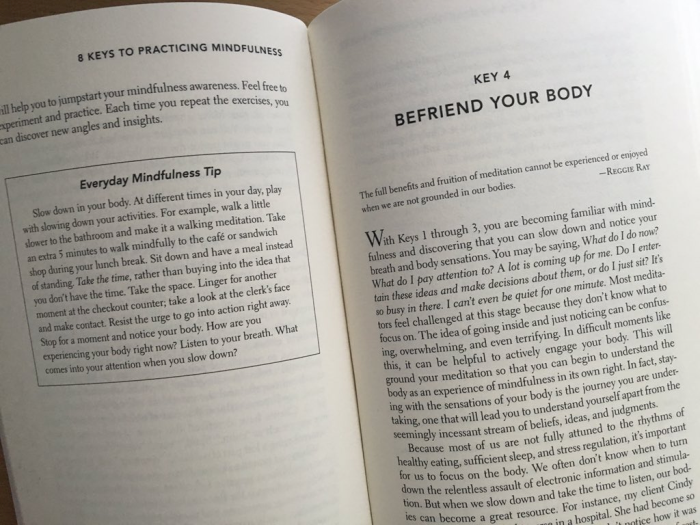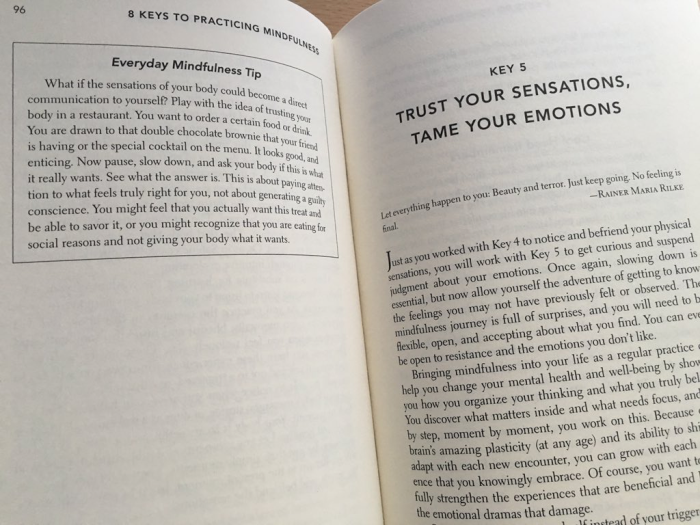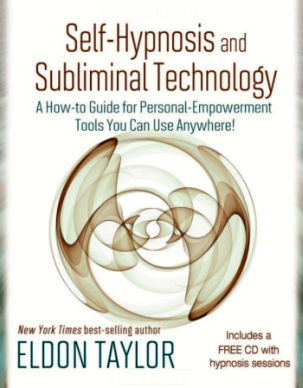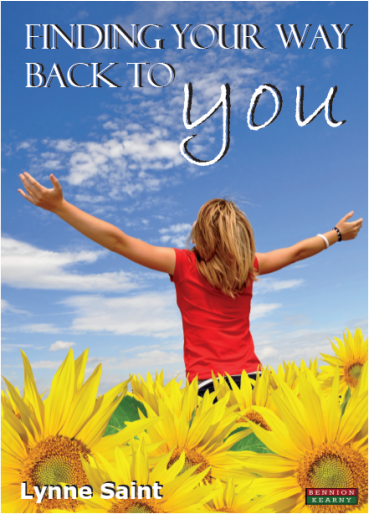
I was recently sent a great book to read that also has mindfulness on its mind a great deal – 8 Keys to Practicing Mindfulness by Manuela Mischke Reeds. This is one of those self help and inspirational books that reads in a manner you can only describe as lyrical. The text is both wise and beautiful at once and it makes for a very relaxing, introspective, and… well… lovely journey.
Learning how to pay attention to the present moment.
Becoming mindful is about the small, everyday things such as pausing to take a breath before you drive off in a hurry or considering the food that will nourish your body before a meal. Or it can mean checking in with yourself before responding to a challenging email or text.
Every moment of our lives can become an opportunity to practice mindfulness. This book will invite you to sharpen your awareness and ask yourself with more frequency, “What do I notice right now?” or “How do I need to respond or be with this situation?”
These seemingly tiny moments of noticing yourself can have a major impact on your life as you learn to track habitual patterns and awaken to change. Practicing mindfulness is not about being better by figuring it all out. It is about tolerating the moments when you don’t know or learning to be more curious about the struggle.
Here you will learn how to establish a basic practice with guidelines for posture and breathing as well as various options for meditations that involve sitting, walking, gently moving or lying down. You can try these exercises at your lunch break, before you rise or fall asleep. But best of all is for you to sprinkle mindfulness throughout your day.
Whether you are new to mindfulness or a seasoned practitioner, you can make the conscious decision to change your approach to life. Moment by moment you have the opportunity to cultivate awareness that will make a difference in how you engage with the world on a daily basis.
8 Keys to Practicing Mindfulness reminds us that our lives are filled with moments and that to take any of these moments for granted is a waste of epic proportions. I love the concept of (frequently) asking yourself, “What do I notice right now?” While I am generally good at living in the moment, I began to ask myself this question frequently while I was reading this book and have continued to do so since.
My answers have included…
- wind whistling through the trees
- my cat’s breathing
- a hummingbird at a feeder
- my husband flipping the pages of a newspaper
- birds singing
- my youngest daughter painting her nails
- a kitten swatting at her momma cat’s tail
Moments such as these may not float your boat, but they float my entire fleet. Becoming more aware of the peaceful, downright beautiful moments that fill my day has been a lovely experience and it’s one I’ll take advantage of forever and ever, amen.
{Review Continued Below….}

I love the “Everyday Mindfulness Tip”s throughout the book as well as the wonderful “Try This” prompts. Below is a “Try This” dealing with anger:
In a moment of anger, yours or someone else’s, ask these questions: What is the truth behind this anger? If this anger could speak, what would it say? What would be help to calm this intensity right now? What are its physical manifestations? How long does it take for me to think calmly after the anger comes up? If the anger is aimed at me, does it carry a message that is important for me to hear? – Page 120
Different emotions are dealt with in the various “Try This” prompts – sadness, anger, fear, grief, stress, etc. and they are priceless. The reason I chose the one above is the fact that I love one part of this prompt in particular – I have always tried to identify the source of things said by me (or those around me). When we are in an emotional state, our emotion very often does the speaking for us. The problem is, emotions will say just about anything! I love that the author asks, “If this anger could speak, what would it say?” This is the golden key at getting to the heart of any emotion you’re dealing with.
Have you ever thought, “I’m kind of blue today, but I don’t know exactly why?” Ask the one who does… the blues, themselves. This is effective for sadness, anger, and even fear.
When dealing with anger, the benefits of this exercise are two-fold: You’ll realize exactly why you’re feeling so much anger AND you’ll allow anger to have its say – with only you in the audience.
Can you imagine how much hurt could be avoided by allowing anger to whisper to you and you alone instead of taking the microphone like he normally likes to do?!
About the Author
Manuela Mischke Reeds, MA, MFT, is an international teacher of mindfulness-based somatic psychology. She co-directs the Hakomi Institute of California and teaches in the US, Europe, and Australia. A meditation practitioner for over 25 years, Manuela lectures, consults and trains professionals in mindfulness, attachment, trauma, and movement therapy. She maintains a private psychotherapy practice in Menlo Park, CA.
Babette Rothschild, MSW, LCSW, is a bestselling author, editor of the Norton 8 Keys to Mental Health Series, and member of the International Society for Traumatic Stress Studies. She gives lectures and professional trainings around the world. To date, her books have been translated into 13 different languages.
Final Thoughts
Sometimes it seems as though there are more books in the world than anything else – maybe it’s because I review so many books on my websites, but seriously there are a lot of books in the world and even more rolling hot off the presses each day. For a book to stand out among millions of its kind is a special accomplishment and 8 Keys to Practicing Mindfulness pulls it off with aplomb.
This is a beautiful book that’ll help put you more in touch with you and the world around you. It’s a winner from start to finish.
~ Joi (“Joy”)





